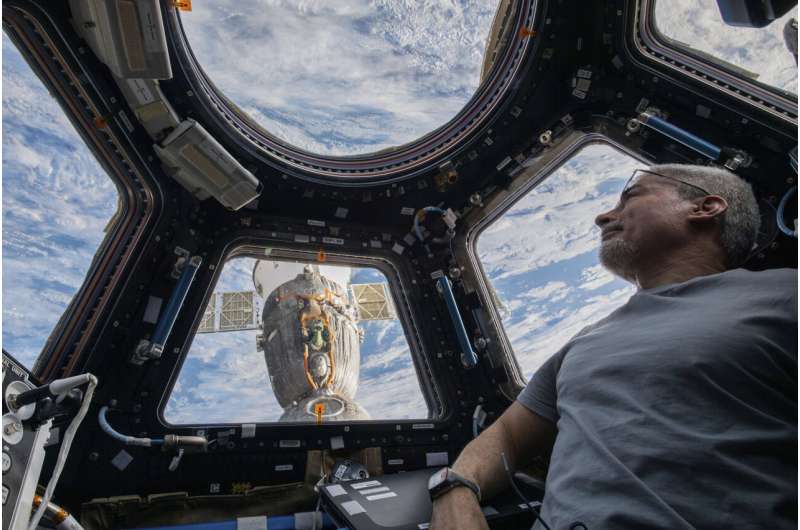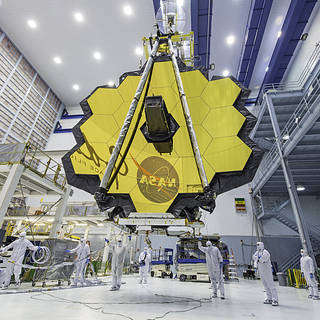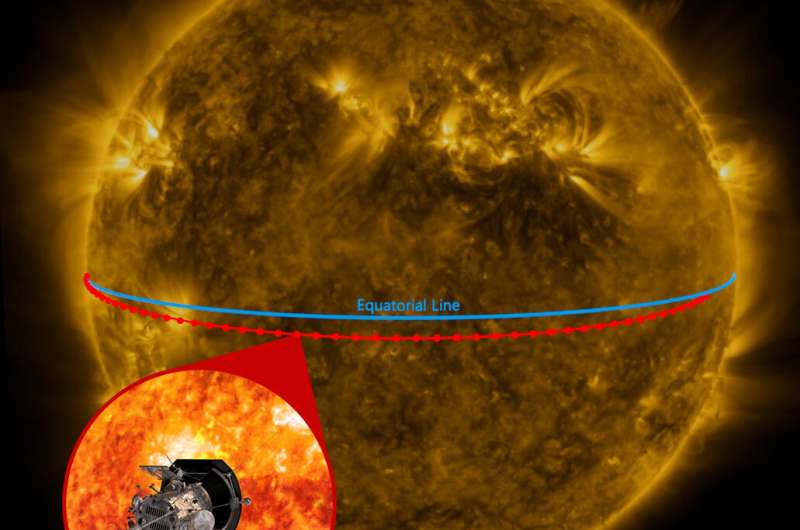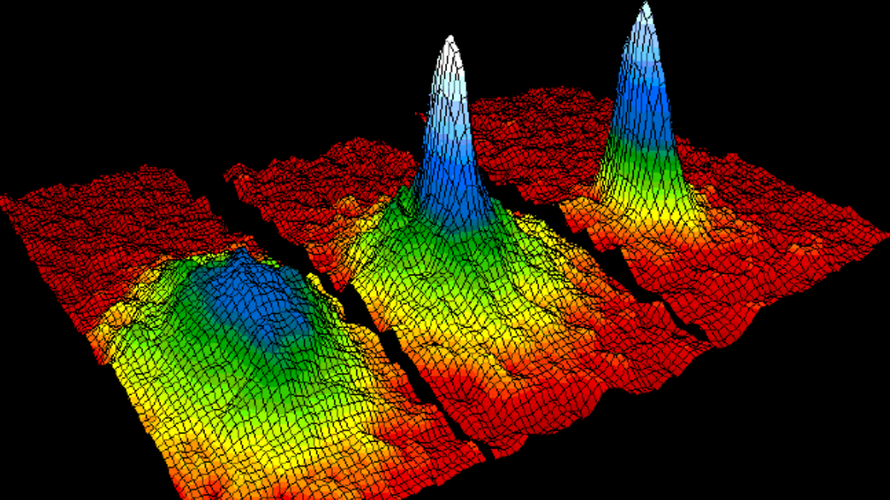
Copernical Team
Tuesday, 15 March 2022 05:01
Astra Space scrubs first launch since rocket failure because of lightning
Washington DC (UPI) Mar 14, 2021
 California-based Astra Space scrubbed the launch of a rocket from Alaska on Monday due to a potential for lightning in the area, company officials said.
The attempt was its first return to a launchpad since the company's stock plunged after it suffered a rocket failure during launch of a NASA mission from Florida on Feb. 10.
"Astra scrubbing for the day, due to triggered lightnin
California-based Astra Space scrubbed the launch of a rocket from Alaska on Monday due to a potential for lightning in the area, company officials said.
The attempt was its first return to a launchpad since the company's stock plunged after it suffered a rocket failure during launch of a NASA mission from Florida on Feb. 10.
"Astra scrubbing for the day, due to triggered lightnin
 California-based Astra Space scrubbed the launch of a rocket from Alaska on Monday due to a potential for lightning in the area, company officials said.
The attempt was its first return to a launchpad since the company's stock plunged after it suffered a rocket failure during launch of a NASA mission from Florida on Feb. 10.
"Astra scrubbing for the day, due to triggered lightnin
California-based Astra Space scrubbed the launch of a rocket from Alaska on Monday due to a potential for lightning in the area, company officials said.
The attempt was its first return to a launchpad since the company's stock plunged after it suffered a rocket failure during launch of a NASA mission from Florida on Feb. 10.
"Astra scrubbing for the day, due to triggered lightnin
Published in
News
Tagged under
Tuesday, 15 March 2022 05:01
NASA insists space station unaffected by Russian war
Washington (AFP) March 14, 2022
 NASA on Monday insisted tensions linked to the war in Ukraine had no impact on International Space Station operations or the planned return of an American astronaut aboard a Russian capsule later this month.
Mark Vande Hei is due to fly to the Baikonur Cosmodrome in Kazakhstan aboard a Russian Soyuz capsule with cosmonauts Pyotr Dubrov and Anton Shkaplerov on March 30 after 355 days in space
NASA on Monday insisted tensions linked to the war in Ukraine had no impact on International Space Station operations or the planned return of an American astronaut aboard a Russian capsule later this month.
Mark Vande Hei is due to fly to the Baikonur Cosmodrome in Kazakhstan aboard a Russian Soyuz capsule with cosmonauts Pyotr Dubrov and Anton Shkaplerov on March 30 after 355 days in space
 NASA on Monday insisted tensions linked to the war in Ukraine had no impact on International Space Station operations or the planned return of an American astronaut aboard a Russian capsule later this month.
Mark Vande Hei is due to fly to the Baikonur Cosmodrome in Kazakhstan aboard a Russian Soyuz capsule with cosmonauts Pyotr Dubrov and Anton Shkaplerov on March 30 after 355 days in space
NASA on Monday insisted tensions linked to the war in Ukraine had no impact on International Space Station operations or the planned return of an American astronaut aboard a Russian capsule later this month.
Mark Vande Hei is due to fly to the Baikonur Cosmodrome in Kazakhstan aboard a Russian Soyuz capsule with cosmonauts Pyotr Dubrov and Anton Shkaplerov on March 30 after 355 days in space
Published in
News
Tagged under
Monday, 14 March 2022 14:50
Pete Davidson headed to space on Blue Origin craft

Published in
News
Tagged under
Monday, 14 March 2022 14:51
US astronaut to ride Russian spacecraft home during tensions

Published in
News
Tagged under
Monday, 14 March 2022 15:04
NASA to Discuss Progress as Webb Telescope’s Mirrors Align
 NASA will hold a virtual media briefing at noon EDT Wednesday, March 16, to provide an update on the James Webb Space Telescope’s mirror alignment.
NASA will hold a virtual media briefing at noon EDT Wednesday, March 16, to provide an update on the James Webb Space Telescope’s mirror alignment.
Published in
News
Tagged under
Monday, 14 March 2022 10:15
Telescopes trained on Parker Solar Probe's latest pass around the sun

Published in
News
Tagged under
Monday, 14 March 2022 11:31
ESA probing navigation via the quantum realm

ESA’s NAVISP programme – helping to invent the future of European navigation – is probing the science of the very small. The aim is to employ hyper-sensitive quantum technology-based sensors as supplementary navigation solutions, including tracking local variations in gravity that could be matched onto regional and global gravity maps.
Published in
News
Tagged under
Monday, 14 March 2022 07:29
"Seafloor fertilizer factory" helped breathe life into Earth
Leeds UK (SPX) Mar 11, 2022
 Scientists reveal a new part of the recipe for complex life on planets, and it involves the onset of a microbial fertilizer factory on the Earth's seafloor roughly 2.6 billion years ago.
The first major rise in oxygen levels on the Earth took place roughly 2.4 to 2.2 billion years ago during the early stage of the Great Oxidation Event.
Scientists are still unsure why and how the Gre
Scientists reveal a new part of the recipe for complex life on planets, and it involves the onset of a microbial fertilizer factory on the Earth's seafloor roughly 2.6 billion years ago.
The first major rise in oxygen levels on the Earth took place roughly 2.4 to 2.2 billion years ago during the early stage of the Great Oxidation Event.
Scientists are still unsure why and how the Gre
 Scientists reveal a new part of the recipe for complex life on planets, and it involves the onset of a microbial fertilizer factory on the Earth's seafloor roughly 2.6 billion years ago.
The first major rise in oxygen levels on the Earth took place roughly 2.4 to 2.2 billion years ago during the early stage of the Great Oxidation Event.
Scientists are still unsure why and how the Gre
Scientists reveal a new part of the recipe for complex life on planets, and it involves the onset of a microbial fertilizer factory on the Earth's seafloor roughly 2.6 billion years ago.
The first major rise in oxygen levels on the Earth took place roughly 2.4 to 2.2 billion years ago during the early stage of the Great Oxidation Event.
Scientists are still unsure why and how the Gre
Published in
News
Tagged under
Monday, 14 March 2022 07:29
Icesat-2 data shows Arctic sea ice thinning in just three years
Washington DC (SPX) Mar 11, 2022
 Over the past two decades, the Arctic has lost about one-third of its winter sea ice volume, largely due to a decline in sea ice that persists over several years, called multiyear ice, according to a new study. The study also found sea ice is likely thinner than previous estimates.
Seasonal sea ice, which melts completely each summer rather than accumulating over years, is replacing thicke
Over the past two decades, the Arctic has lost about one-third of its winter sea ice volume, largely due to a decline in sea ice that persists over several years, called multiyear ice, according to a new study. The study also found sea ice is likely thinner than previous estimates.
Seasonal sea ice, which melts completely each summer rather than accumulating over years, is replacing thicke
 Over the past two decades, the Arctic has lost about one-third of its winter sea ice volume, largely due to a decline in sea ice that persists over several years, called multiyear ice, according to a new study. The study also found sea ice is likely thinner than previous estimates.
Seasonal sea ice, which melts completely each summer rather than accumulating over years, is replacing thicke
Over the past two decades, the Arctic has lost about one-third of its winter sea ice volume, largely due to a decline in sea ice that persists over several years, called multiyear ice, according to a new study. The study also found sea ice is likely thinner than previous estimates.
Seasonal sea ice, which melts completely each summer rather than accumulating over years, is replacing thicke
Published in
News
Tagged under
Monday, 14 March 2022 07:29
Wildfire Workshop Accelerates NASA Firefighting Solutions
Edwards AFB CA (SPX) Mar 13, 2022
 In a changing climate, wildfires are becoming more widespread and devastating, threatening more people and land than ever before. In response, NASA is stepping up to the plate to determine what we can do to help fight wildfires - and we have some ideas.
NASA has long been involved in wildfire management through the Science Mission Directorate (SMD) using space-based technologies and other
In a changing climate, wildfires are becoming more widespread and devastating, threatening more people and land than ever before. In response, NASA is stepping up to the plate to determine what we can do to help fight wildfires - and we have some ideas.
NASA has long been involved in wildfire management through the Science Mission Directorate (SMD) using space-based technologies and other
 In a changing climate, wildfires are becoming more widespread and devastating, threatening more people and land than ever before. In response, NASA is stepping up to the plate to determine what we can do to help fight wildfires - and we have some ideas.
NASA has long been involved in wildfire management through the Science Mission Directorate (SMD) using space-based technologies and other
In a changing climate, wildfires are becoming more widespread and devastating, threatening more people and land than ever before. In response, NASA is stepping up to the plate to determine what we can do to help fight wildfires - and we have some ideas.
NASA has long been involved in wildfire management through the Science Mission Directorate (SMD) using space-based technologies and other
Published in
News
Tagged under
